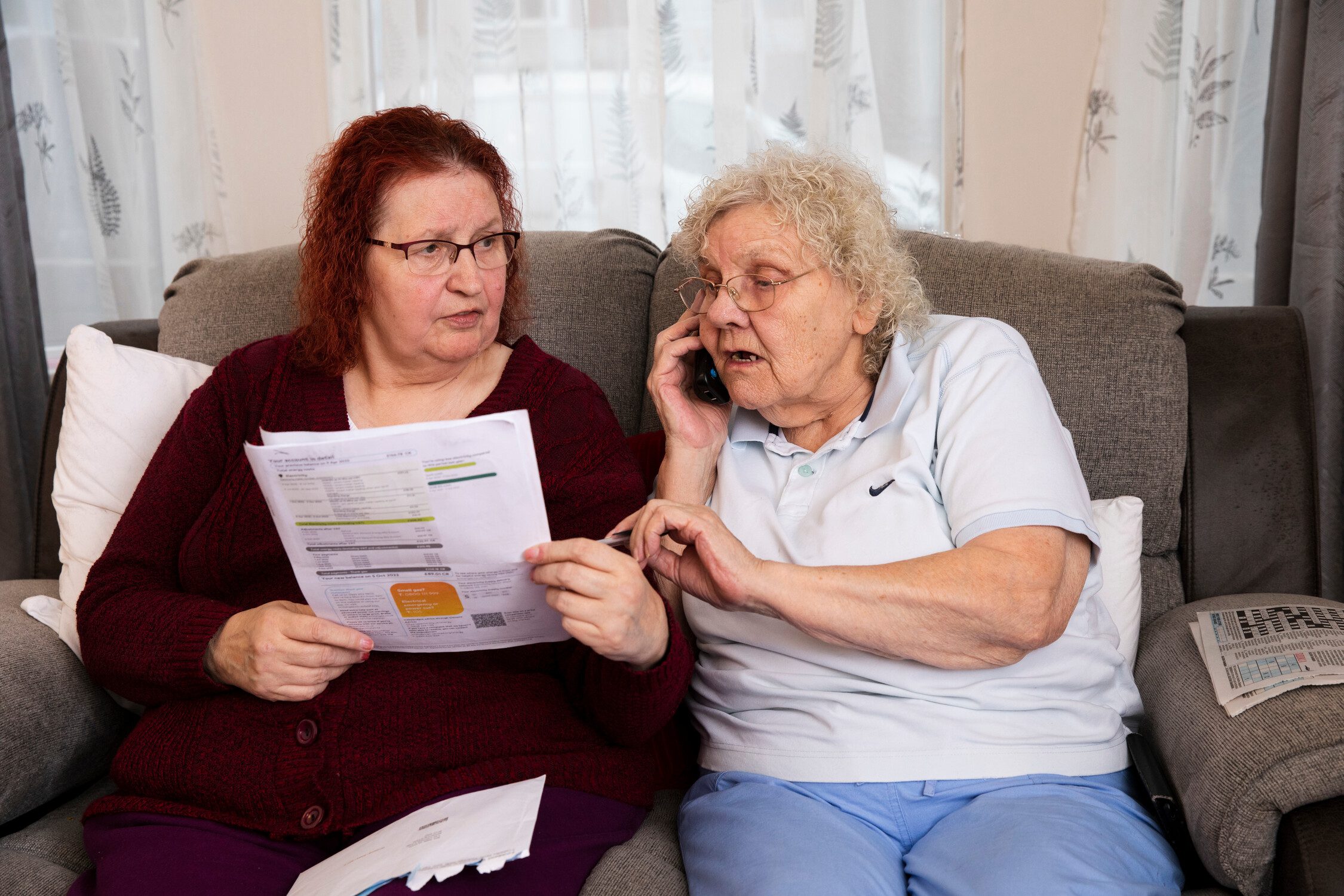Help for caregivers – accepting support from others
Tags
Family Support
Just because help is available to caregivers, doesn’t mean it’s easy to accept. If you or someone you know is caring for a loved one, we’ve shared some of the reasons it can be difficult to give up your caregiving responsibilities, as well as the benefits of doing so.
What stops family carers from accepting help?
Caregiver guilt
Even when you’re the spouse, son, or daughter of someone needing care, you don’t need to take on all caring responsibilities yourself. However, in reality, it’s normal to feel responsible for the well-being of someone who has dedicated their own life to looking after yours. Feeling so invested in a loved one’s quality of life can lead to feelings of guilt when you’re not with them.
Feeling protective of a loved one.
Taking on a caring role is a big responsibility and therefore, can have a big impact on our feelings. It can be hard giving so much love and attention to someone who isn’t getting better or is still losing their ability to live independently. It’s natural to think that if you can’t help them get better – when you love them the most and have their best interests at heart – then what chance does a stranger have?
Sibling rivalry
Feelings of competition can linger well beyond childhood, and even in healthy family dynamics, siblings may want to be seen as the ones who helped the most. Family caregivers looking after a parent may see their caregiving tasks as a chance to earn this recognition and spend more time with their parent, and be reluctant to give this up to a professional carer.
Care options are too expensive
Unfortunately, care is rarely free, and even if your loved one is eligible for funding support, it can take a long time to claim it.
Often, unpaid carers take up the role because it’s the financially safer and cheaper option – and ensures a loved one has the support they need without needing to wait. However, unpaid care is rarely sustainable. If a spouse is a primary carer, they’ll likely reach a point where they’re physically unable to provide care – especially if they’re older and have health problems themselves. Adult children will likely have their own lives and careers that they can’t put on hold forever while they take on a caregiving role.
Long-term care does require a significant financial commitment, however, there are options that can reduce the cost which we’ll cover in greater detail later on.
Fear of strangers
Caregiving duties aren’t all making tea and taking gentle strolls, it’s hard work which requires a huge amount of compassion and patience. For some, it can be difficult to picture how professional caregivers can come in and provide the right level of dedicated care when they lack an emotional connection to their care recipient.
Some also worry that getting social services involved will mean losing control and having less say over how a loved one is cared for, perhaps, resulting in them being moved into a care home against their wishes. In reality, thanks to the Care Act 2014, local authorities have a duty to involve the person needing care so that they can voice their wishes.
Wanting to maintain privacy
Needing care in later life can feel invasive – if you need help with personal care, such as washing and toileting it can be difficult to accept this help from a stranger. Some informal caregivers want to help their loved ones to protect their dignity and maintain some sense of privacy. Refusing outside help ensures their loved one’s home remains a safe, private space, and that there’s no risk of their medical care and personal life becoming public knowledge in the wider community.
How can caregivers begin to accept help?
Get impartial advice
There’s a lot of information out there, and it can be hard to find truly impartial advice when it comes to social care. Seeking support from someone without any emotional connection to your family can help, such as a talking therapist, counsellor, or someone from your local religious group. Discussing how you’re feeling with a GP can help with the practical side of things – helping you understand the impact long-term caregiving can have on your mental and physical health.
Reach out to communities of caregivers
Nobody understands the realities of caring like other caregivers. There are lots of support groups across the UK that either meet locally or take place online. These groups can be a great place to share how you’re feeling, daily experiences, and even get recommendations for professional care from people who shared similar worries or concerns. The Carers Trust, Carers UK, and Age UK have useful directories of carer support communities.
Research care providers
Often the fear of the unknown can be worse than having specific concerns about care. Independently researching different care providers and comparing what they offer can help you get more comfortable with the idea of outside help.
Don’t be afraid to ask lots of questions. These should reflect what’s most important to you or your loved one, or areas that you’re concerned about. if you’re unsure where to start, the below questions may help –
- What everyday tasks will a carer help with? Will a loved one have a say when it comes to where help is most needed?
- Will the carer be able to cook their favourite meals, while supporting a healthy diet?
- How do carers approach personal care and support dignity?
- How involved can the family be – can they help build the care plan or direct how care works day to day?
Ensure you’re getting all the support you’re entitled to
There’s financial aid available to both you and the person you’re caring for. While it can take some time and effort to apply, the difference it can make over time, when you add it all up can be significant.
Carers allowance – a benefit for carers who support someone for over 35 hours a week. If you and the person you’re caring for meet the qualifying criteria, you could receive £69.70 a week.
Local Authority funding – means-tested funding that, if eligible could help cover all or some of your loved one’s care costs, and help you put some professional support in place.
Carers credit – an additional payment if you’re caring for someone for 20+ hours a week.
Universal credit – a monthly payment to help with living costs if your caring responsibilities mean you are out of paid work or have less than £16,000.

Benefits of accepting help as a caregiver
Restore relationships and family roles
Over time, caring for a loved one can have a detrimental impact on daily life, especially if you’re caring for a parent. ‘Switching’ roles and supporting a parent can put a strain on your relationship – it can change how you see each other, make you yearn for the way things were, and sometimes create awkwardness or resentment.
Introducing even some occasional outside help can ease some of the pressure of caring. It can give you back quality time together where you can simply enjoy each other’s company and reconnect as a family.
Refresh your mind and body with respite care
Respite care is a form of temporary care designed to give primary caregivers a break. Respite is essential as a carer – it allows you to step away and put yourself first. Whether you spend this time with friends, go on holiday, or simply sit back and relax for a few hours – it’s crucial to your mindset and well-being that you give yourself regular breaks.
There is a range of respite care options to suit different budgets and needs. From round-the-clock care in a care home or through a live-in carer, to short visits to daycare centres, and hourly home care.
Avoid carer burnout
Carer burnout is more than just feeling tired. It’s a serious state of physical exhaustion and poor mental health, caused by prolonged periods of stress.
Everyone handles stress differently, so some people may not experience burnout until they’re well into their caregiving role. However, certain situations can increase the likelihood of you reaching burnout. these include –
- When you become a carer unexpectedly, and it’s unclear how long you’ll be a carer
- When you are caring for someone alone, or without the resources you need
- When the care you give doesn’t seem to be having an impact on their health or wellbeing
- When the person receiving care is resistant to your help, or experiences mood swings (this is common among people with dementia)
Burnout can manifest itself in a range of symptoms. You may find yourself getting sick or picking up bugs more often. It can affect your sleep and eating habits, it can lower your reaction times, motivation, and cause negative feelings toward the person you’re caring for. Being aware of these signs and accepting help before you reach significant physical and emotional exhaustion can help not only protect your well-being but the well-being of your loved one too.
This article is for informational purposes only and not to be taken as medical advice. For medical advice, always consult your GP.
Read more on family support

What are sitting services for the elderly?
If you’re looking for a little additional care for yourself or a loved one, you may have come across elderly sitting services – but what

Spotting the signs of burnout
Spotting the signs of burnout Caring for someone can be physically and mentally demanding, and over time – and without the right support could
